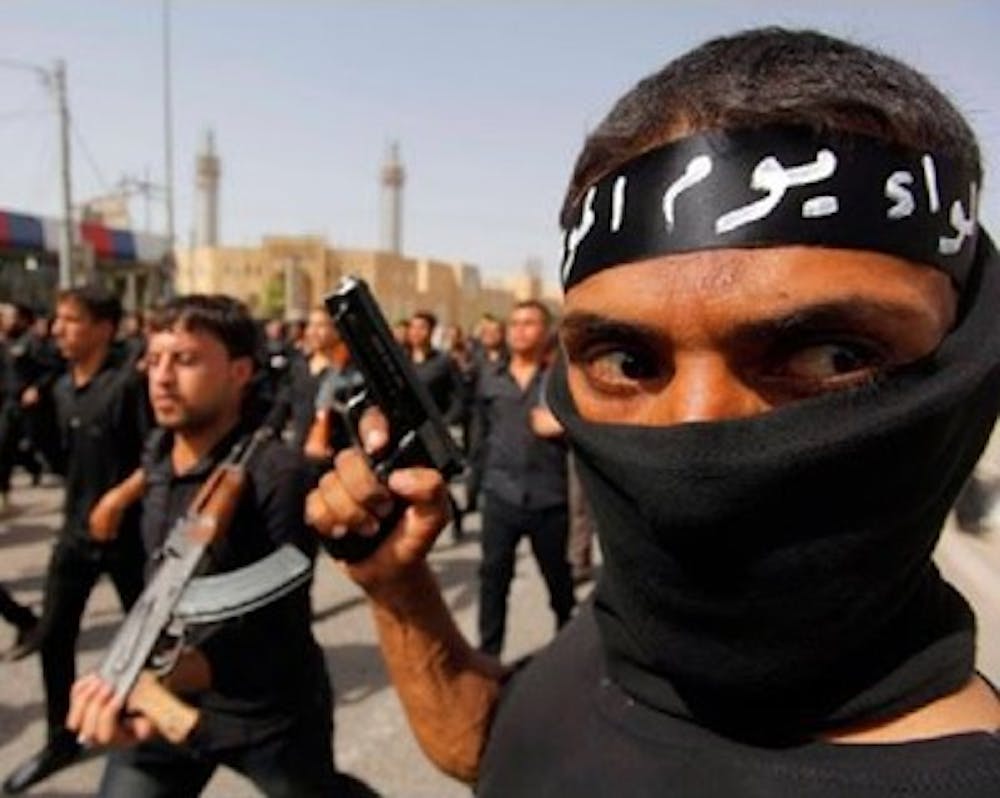Despite the best efforts of the United States and its allies, the Islamic State remains a legitimate threat to the peace and wellbeing of the world. In recent months, some of the nation’s leading politicians have endorsed taking drastic (and violent) measures to stop their gains. This “bomb first, think later” strategy—which has been proposed by politicians and analysts on both sides of the aisle—will never succeed.
What so many leaders and pundits fail to acknowledge is that the geopolitical crisis in Iraq and Syria is far different from any the world has ever seen and, therefore, requires a different line of thinking.
Since the San Bernadino shootings shook California in December, politicians have intensified their rhetoric against the Islamic State (also known as ISIS, ISIL or Daesh). Sen. Ted Cruz, R-TX., vowed to “carpet bomb [ISIS] into oblivion” until “sand glows in the dark.” Donald Trump’s bluster was—predictably—even more excessive, as he revealed his plan to “bomb the s--- out of ‘em.” Even Hillary Clinton, running on the other side of the political spectrum, called for an escalation of the coalition bombing campaign.
These strategies, however, are fatally flawed. The practice of carpet-bombing ISIS in an attempt to break its will, one that is already in effect under the Obama administration, shows a misunderstanding of the situation as a whole. Though the strategy has worked against enemies in the past, it revolves around an incorrect assumption: that ISIS territory is populated almost exclusively by ISIS sympathizers, whom the Islamic state wants to protect.
In World War II, mass bombing campaigns against the Germans and Japanese were effective. The leaders of the Axis nation saw their civilians die, their food sources burn, and their weapon-making abilities disintegrate. As their territories shrunk and their citizens were killed, they had to eventually surrender so as to protect their people from horrible punishments.
We have since learned, however, that stopping belligerent nations—which are clearly defined by borders—and stopping the spread of radical ideas require very different strategies. The vast majority of people living in an ISIS-controlled territory aren’t sympathizers or collaborators; they’re essentially hostages. There are between 2 and 8 million people living in ISIS territory, and probably only 20,000-30,000 of them are militants according to NPR. The vast majority of people in the region are essentially held there against their will, and the leaders of the Islamic State have little desire to protect them.
By carpet-bombing the territory, we are only feeding anti-US sentiment. Drone strikes and bombs are nondiscriminatory; they don’t choose to only kill enemy combatants, they kill anyone within range. Many strikes have been successful in killing ISIS leaders and soldiers, but many of the approximately 10,000 strikes have effected collateral damage as well.
Strikes that harm innocent civilians and their loved ones help turn U.S. sympathizers and supporters into ISIS sympathizers, feeding the “us against the world” philosophy that is a pillar of the Islamic State’s values. By killing the people who have done nothing wrong, we only create more problems for ourselves.
Other strategies need to be employed in order to put a halt to ISIS’ military and propaganda campaign. Many people drafted into ISIS are young and impressionable, and many know little about Islam other than the radical views that have been imposed upon them. A counter-propaganda campaign would help alter many of their views.
In both World Wars, “leaflet propaganda” strategies were used to inform and warn people living in enemy territory. By dropping leaflets on towns, the U.S. could spread information and teach people about why the views of their leaders and nations are wrong, and exactly why war is being waged upon them. The strategy has mostly become obsolete due to the advent of satellites and the Internet, but those technologies are limited in the embattled region ruled by ISIS. Trying to educate members of the Islamic State and fight the unfettered propaganda flowing throughout the region could put a halt to their holy war.
The fiery bombast shown by politicians has succeeded in riling up the nation and creating a hawkish fervor to punish every single person in a region that is being compromised by a select few people. It is time, however, that people realize the region is less of an enemy state full of only bad guys and more of a hostage situation in which bad guys, and a far larger number of innocent bystanders, reside. Trying to defeat the Islamic State by bombing the whole region into oblivion is like trying to defeat a bank robber by killing everyone in the bank. It’s time for a plan that will work—and more importantly, one we can all live with.
Sebastian is a freshman majoring in environmental studies and history. Do you agree with Sebastian? Do you disagree? Let us know what you think. Please send all comments and concerns to opinion@dailycardinal.com.






